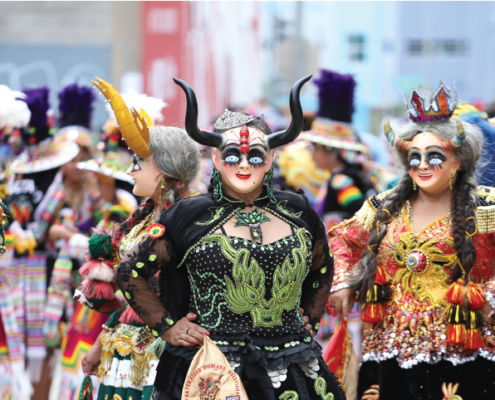Celebration
CARICOM DAY
The celebration of CARICOM Day is the selected day some Caribbean Community (CARICOM) countries officially recognise the commemorative date of signing of the Treaty of Chaguaramas, the agreement that established CARICOM on July 4, 1973. The Treaty was signed in Chaguaramas, Trinidad & Tobago by then leaders of: Barbados, Guyana, Jamaica, and Trinidad and Tobago.
CARICOM Day is recognised as an official public holiday in Guyana where the secretariat is based, and is observed on the first Monday of July. The government of Antigua and Barbuda has also implemented CARICOM Day as a holiday.
The day features activities that are organised by government entities such as parades, pageants, and campaigns to educate people about CARICOM.
CARICOM-Cuba Day
The Republic of Cuba commemorates with the bloc the initial date of official political relations between CARICOM and CUBA as the second week of December.[30]
History
CARICOM, originally the Caribbean Community and Common Market, was established by the Treaty of Chaguaramas which took effect on 1 August 1973. The first four signatories were Barbados, Jamaica, Guyana and Trinidad and Tobago.
CARICOM superseded the 1965–1972 Caribbean Free Trade Association (CARIFTA) organised to provide a continued economic linkage between the English-speaking countries of the Caribbean after the dissolution of the West Indies Federation, which lasted from 3 January 1958 to 31 May 1962.
A revised Treaty of Chaguaramas established the Caribbean Community including the CARICOM Single Market and Economy (CSME) and was signed by the CARICOM Heads of Government of the Caribbean Community on 5 July 2001 at their Twenty-Second Meeting of the Conference in Nassau, The Bahamas. The revised treaty cleared the way to transform the idea of a common market CARICOM into the Caribbean (CARICOM) Single Market and Economy.
Haiti’s membership in CARICOM remained effectively suspended from 29 February 2004 through early June 2006 following the 2004 Haitian coup d’état and the removal of Jean-Bertrand Aristide from the presidency. CARICOM announced that no democratically elected government in CARICOM should have its leader deposed.
The fourteen other heads of government sought to have Aristide fly from Africa to Jamaica and share his account of events with them, which infuriated the interim Haitian prime minister, Gérard Latortue, who announced he would take steps to take Haiti out of CARICOM. CARICOM thus voted on suspending the participation of Haitian officials from the councils of CARICOM.[34] Following the presidential election of René Préval, Haitian officials were readmitted and Préval himself gave the opening address at the CARICOM Council of Ministers meeting in July.
Since 2013 the CARICOM-bloc and with the Dominican Republic have been tied to the European Union via an Economic Partnership Agreements signed in 2008 known as CARIFORUM.[35] The treaty grants all members of the European Union and CARIFORUM equal rights in terms of trade and investment. Under Article 234 of the agreement, the European Court of Justice handles dispute resolution between CARIFORUM and European Union states.


